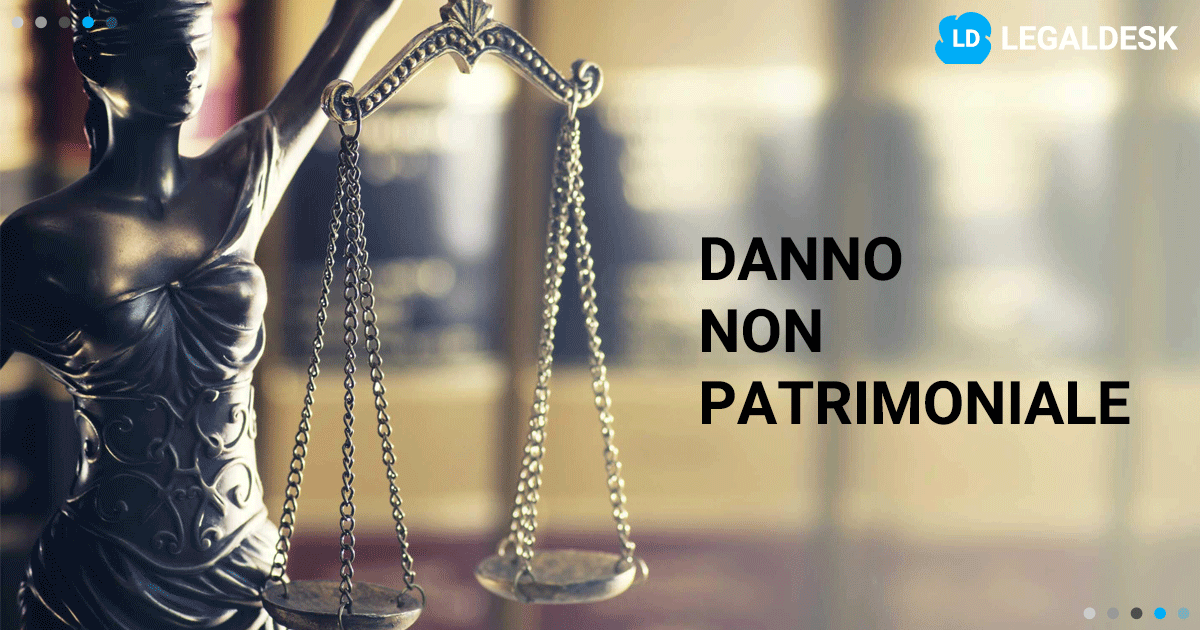Non-pecuniary damage is at the center of different debates raised both by the doctrine and by the jurisprudence.
Neuralgic point is the absence of unique elements that go to crystallize, once and for all, the meaning of biological damage, moral damage and existential damage.
While on the one hand many people have played precisely on the insufficiency of precise rules to make compensation, currently the normative orientation seems to tighten the scope very much.
What is the purpose of all this? Avoid unjustified requests for damages that do not require refreshment.
But what is the non-pecuniary damage? What are the legal references and what does the jurisprudence say about it? Let's find out together.
Use now LEGALDESK, the management that helps you every day
Non-pecuniary damage: what are the main legislative sources?

The law in question seems to say everything and nothing, but it lays down a fundamental principle, that is, if there are no laws expressly providing for when compensation is due, it is not possible to recognize any kind of refreshment for those who suffer non-pecuniary damage.
And this assumption has long been the guideline for many decisions. The reason is found in another article of our legal system, 185 of the cod. pen. .
According to this law every crime that has caused a non-pecuniary damage compels the guilty party and the persons who, according to the civil laws, must answer for the fact of him. Such a predictable prediction meant that the compensation should have come only when there was a conduct attributable to a crime hypothesis.
If no crime or violation had been committed, no relief would be admissible outside of the pecuniary damage.
This is because while for non-contractual damage to property there is a complete rule (Article 2043 of the Civil Code), the postponement of art. 2059 cod. civ. made any kind of interpretation of criminal law restrictive.
Over time, however, it has given greater weight to everything that has to do with the moral, health and dignity of the human being. And it is for this reason that the way has been opened to an interpretation that has given rise to the so-called moral damage, biological damage and existential damage.
And to lend the side were so many laws and numerous judgments of the Supreme Court over the course of time have tried to frame the meaning of non-pecuniary damage.




